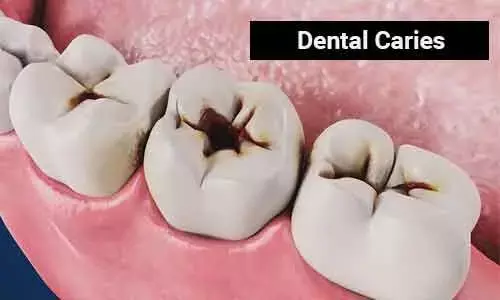- Home
- Medical news & Guidelines
- Anesthesiology
- Cardiology and CTVS
- Critical Care
- Dentistry
- Dermatology
- Diabetes and Endocrinology
- ENT
- Gastroenterology
- Medicine
- Nephrology
- Neurology
- Obstretics-Gynaecology
- Oncology
- Ophthalmology
- Orthopaedics
- Pediatrics-Neonatology
- Psychiatry
- Pulmonology
- Radiology
- Surgery
- Urology
- Laboratory Medicine
- Diet
- Nursing
- Paramedical
- Physiotherapy
- Health news
- Fact Check
- Bone Health Fact Check
- Brain Health Fact Check
- Cancer Related Fact Check
- Child Care Fact Check
- Dental and oral health fact check
- Diabetes and metabolic health fact check
- Diet and Nutrition Fact Check
- Eye and ENT Care Fact Check
- Fitness fact check
- Gut health fact check
- Heart health fact check
- Kidney health fact check
- Medical education fact check
- Men's health fact check
- Respiratory fact check
- Skin and hair care fact check
- Vaccine and Immunization fact check
- Women's health fact check
- AYUSH
- State News
- Andaman and Nicobar Islands
- Andhra Pradesh
- Arunachal Pradesh
- Assam
- Bihar
- Chandigarh
- Chattisgarh
- Dadra and Nagar Haveli
- Daman and Diu
- Delhi
- Goa
- Gujarat
- Haryana
- Himachal Pradesh
- Jammu & Kashmir
- Jharkhand
- Karnataka
- Kerala
- Ladakh
- Lakshadweep
- Madhya Pradesh
- Maharashtra
- Manipur
- Meghalaya
- Mizoram
- Nagaland
- Odisha
- Puducherry
- Punjab
- Rajasthan
- Sikkim
- Tamil Nadu
- Telangana
- Tripura
- Uttar Pradesh
- Uttrakhand
- West Bengal
- Medical Education
- Industry
Novel dual-action antimicrobial peptide may effectively manage caries: Study

According to a recent research published in the Journal of Dentistry, researchers have found out that novel dual-action peptide, GA-KR12, is potential applicable in the management of caries.
John YunNiu and colleagues from the Faculty of Dentistry, The University of Hong Kong, Hong Kong, China carried out the present study with the objective to develop a novel dual-action peptide with antimicrobial and mineralising properties.
A novel peptide, namely GA-KR12, was synthesised through grafting gallic acid to KR12. The secondary structure of GA-KR12 was evaluated by circular dichroism spectroscopy. The stability was evaluated by high-performance liquid chromatography.
The cytotoxicity was evaluated by a mitochondrial dehydrogenase activity assay. The antimicrobial properties against common cariogenic species were evaluated by minimum inhibitory concentration (MIC) and minimum bactericidal/fungicidal concentration (MBC/MFC).
The morphology of cariogenic species was analysed by transmission electron microscope (TEM). To assess the mineralising effect of GA-KR12 on enamel, the lesion depths, mineral loss, surface morphology, calcium-to-phosphorus ratio and crystal characteristics were determined using micro-computed tomography, scanning electron microscopy (SEM) and energy dispersive spectroscopy X-ray diffraction, respectively.
The results showed that -
a. GA-KR12 did not exhibit cytotoxicity against HGF. Around 82% of the GA-KR12 remained in human saliva at 37°C for 1 h.
b. The MIC and MBC/MFC against the tested species were 10-320 μM and 20-1,280 μM, respectively. c. GA-KR12 induced remarkable morphological defects in the tested species.
d. The enamel treated with GA-KR12 had smaller lesion depths (p < 0.001), less mineral loss (p < 0.001) and higher calcium-to-phosphorus molar ratios (p < 0.001) than those in the enamel treated with water.
e. SEM showed a well-organised prism pattern in enamel treated with GA-KR12. X-ray diffraction revealed that the hydroxyapatite on the enamel treated with GA-KR12 was better crystalised.
Hence, the authors concluded that "this study developed a biocompatible and stable peptide which inhibited the growth of cariogenic species and mineralised the enamel caries."
Dr. Nandita Mohan is a practicing pediatric dentist with more than 5 years of clinical work experience. Along with this, she is equally interested in keeping herself up to date about the latest developments in the field of medicine and dentistry which is the driving force for her to be in association with Medical Dialogues. She also has her name attached with many publications; both national and international. She has pursued her BDS from Rajiv Gandhi University of Health Sciences, Bangalore and later went to enter her dream specialty (MDS) in the Department of Pedodontics and Preventive Dentistry from Pt. B.D. Sharma University of Health Sciences. Through all the years of experience, her core interest in learning something new has never stopped. She can be contacted at editorial@medicaldialogues.in. Contact no. 011-43720751
Dr Kamal Kant Kohli-MBBS, DTCD- a chest specialist with more than 30 years of practice and a flair for writing clinical articles, Dr Kamal Kant Kohli joined Medical Dialogues as a Chief Editor of Medical News. Besides writing articles, as an editor, he proofreads and verifies all the medical content published on Medical Dialogues including those coming from journals, studies,medical conferences,guidelines etc. Email: drkohli@medicaldialogues.in. Contact no. 011-43720751


